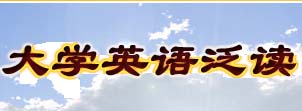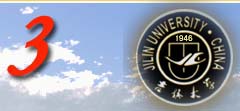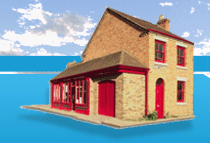| 吉林大学远程教育学院 |






|
|
|
|
|
|


|
>>>> Unit One >>>> Unit Two >>>> Unit Three >>>> Unit Four >>>> Unit Five >>>> Unit Six >>>> Unit Seven >>>> Unit Eight >>>> Unit Nine >>>> Unit Ten >>>> Unit Eleven >>>> Unit Twelve >>>> Unit Thirteen >>>> Unit Fourteen >>>> Unit Fifteen >>>> Unit Sixteen >>>> Unit Seventeen >>>> Unit Eighteen >>>> Unit Nineteen >>>> Unit Twenty >>>> Unit Twenty-one >>>> Unit Twenty-two >>>> Unit Twenty-three >>>> Unit Twenty-four >>>> Unit Twenty-five >>>> Unit Twenty-six >>>> Unit Twenty-seven >>>> Unit Twenty-eight >>>> Unit Twenty-nine >>>> Unit Thirty |
|
True or False Questions 1. The narrator went to the United States by sea when he was young. 2. The narrator didn¡¯t eat enough food on the ship because of its terrible taste. 3. The family for whom he worked as a servant often laughed at him because they thought he was stupid. 4. The narrator saved most of the money he earned and started a business together with a partner two years after he came to the U.S. 5. After working for three years with the railroad, they moved to the mines because it was safer and more profitable there. 6. The narrator believed that the Chinese immigrants were treated unfairly because China was not a warlike nation. 7. According to the narrator, most of the preconceived ideas the Chinese held about Americans were wrong. 8. According to the passage, bosses liked to employ Chinese immigrants because they were more faithful and diligent than other Americans. Multiple-choice Questions 1. The first job the narrator took in the United States was one in ______ . A) domestic service B) railroad construction C) the laundry D) food service 2. The narrator¡¯s first job in the U.S. ______ . A) barely earned him enough money to survive B) gave him the first taste of bitterness in a foreign country C) turned out to be rather satisfactory to him D) was very unpleasant because of language problems 3. From the narrator¡¯s story, we can learn that opening a laundry for a Chinese immigrant then______ . A) was easy and profitable B) meant both hard work and tolerance to insults and frauds C) needed a lot of experience and equipment D) needed much capital 4. From this passage, we can conclude that early Chinese immigrants to the U.S. ______ . A) usually became wealthy overnight B) lived happily in American society C) were looked down upon because of their different cultural traditions D) suffered a lot because of their maladjustment to the American culture 5. The narrator¡¯s personal experiences told him that the Americans ______ . A) were rather intolerant to different cultures B) were inferior to the Chinese in morality C) were lazier and more wicked in mind D) were not so bad as some Chinese described them 6. The narrator believed Americans hated Chinese immigrants primarily because ____ . A) their cultural practices conflicted with American religious precepts B) they were better workers and took away many jobs from Americans C) they looked so different from Americans D) they were often involved in thefts and robberies 7. According to the narrator, the Chinese were prohibited from working on farms, in factories or on construction sites mainly because they ___ . A) were accused of selling cheap labor B) could do very little except laundry work C) could not communicate with other workers in English D) were not as strongly-built as other Americans
|
| 版权所有COPYRIGHT(C) 2005 DEC OF JLU |